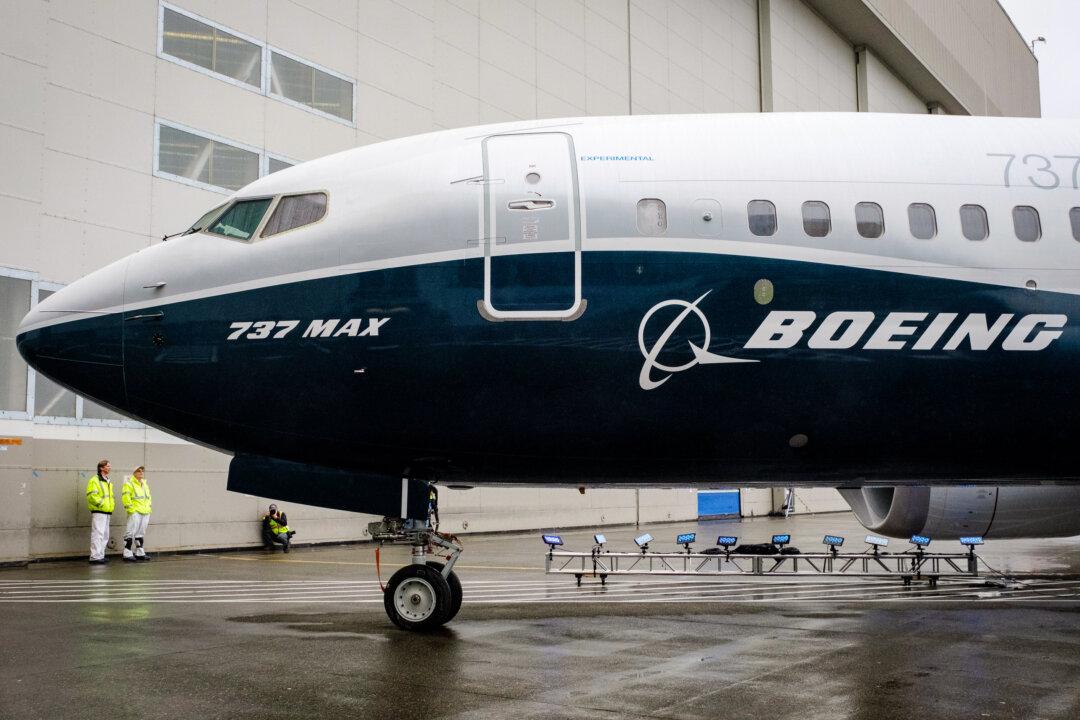Plane maker Boeing’s stock has taken another tumble after Wall Street analysts downgraded the company’s shares in the wake of an incident with its aircraft earlier this month and a resulting safety investigation.
Wells Fargo analyst Matthew Akers downgraded shares of Boeing to Hold from Buy in a report titled “FAA audit opens up a whole new can of worms,” published on Jan. 16.




